第57章 LETTER X(7)
Pepper, coffee, tapioca, cinchona, and ipecacuanha, are being tried successfully; burnt earth, of which the natives have a great opinion, and leaf mould being used in the absence of other manure.
The rainfall is supposed to average 100 inches a year, and since thermometrical observations have been taken the mercury has varied from 68 degrees to 92 degrees. From the mangrove swamps at the mouths of turbid, sluggish rivers, where numberless alligators dwell in congenial slime, the State gradually rises inland, passing through all the imaginable wealth of tropical vegetation and produce till it becomes hilly, if not mountainous. Sparkling streams dash through limestone fissures, the air is clear, and the nights are fresh and cool. Its mineral wealth lies in its tin mines, which have been worked mainly by Chinamen for a great number of years.
The British Resident, who was called in to act as adviser, is practically the ruler of this little State, and the arrangement seems to give tolerable satisfaction. At all events it has secured to Sungei Ujong since the war an amount of internal tranquillity which is not possessed by the adjacent States which are still under native rule, though probably the dread of British intervention and of being reduced to mere nominal sovereignty, being "pensioned off" in fact, keeps the Rajahs from indulging in the feuds and exactions of former years. Since my visit the Datu Klana died of dysentery near Jeddah in Arabia in returning from a pilgrimage to Mecca, and three out of six of his followers perished of the same disease. The succession was quietly arranged, but the hope that the State to which its late ruler was intensely, even patriotically attached might remain prosperous under the new Rajah, has not been altogether fulfilled. Affairs are certainly not as satisfactory as they were, judging from recent official statements. The import of opium has largely increased. Rice planting had failed owing to the mortality and sickness among the buffaloes used in ploughing, the scanty crop was nearly destroyed by rats, and the Malays had shown a "determined opposition" to taking out titles to their lands.
The new Datu Klana is very unpopular, and so remarkably weak in character as not to be able to bring any influence to bear upon the settlement of any difficult question. The Datu Bandar (alluded to in my letter) is entirely opposed to progress of every kind, and, having a great deal of influence, obstructs the present Resident in every attempt to come to an understanding on the land grant question. A virulent cattle disease had put an end for the time being to cart traffic; and the Linggi, the great high-road to the tin mines, had become so shallow that the means of water transport were very limited.
Large numbers of jungle workers had returned to Malacca. The Resident's report shows very significantly the formidable difficulties which attend on the system of a "Dual Control," and on making any interference with "Malay custom" regarding land, etc. It is scarcely likely, however, that Sungei Ujong and the other feeble protected States which have felt the might of British arms, and are paying dearly through long years for their feeble efforts at independence, will ever seek to shake off the present system, which, on the whole, gives them security and justice.